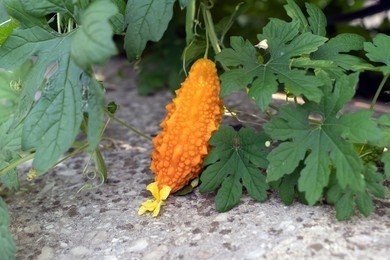Cucurbitaceae Plants Tissue Culture

Cucurbitaceae plants are annual or perennial herbaceous or woody vines of about 113 genera and 800 species, most of which are distributed in the tropics and subtropics, with a few scattered to temperate zones. Among the Cucurbitaceae plants worldwide, there exists a large number of economic crops (resource plants) with potential for human use, including economic plants for human consumption, medicinal use, ornamental use, fiber, and rootstock.
However, ecological factors such as geographical, climatic, and geographic factors limit the development of the excellent characteristics of the best varieties of Cucurbitaceae plants. It is no longer possible to adapt to the needs of local production by simple introduction, while variety improvement by conventional breeding means has many problems such as relatively long period, difficulty, and unstable genetic traits. Therefore, Lifeasible has established an efficient and stable regeneration system using tissue culture biotechnology.
Tissue culture service
The regeneration pathways of Cucurbitaceae plants include adventitious shoot development, embryogenesis, healing tissue redifferentiation, microspore culture, and protoplast culture, among others. In terms of organ culture, Lifeasible has now been able to regenerate complete plants from explants such as true leaves, cotyledons, cotyledon nodes, stem segments with shoots, stem tips, and hypocotyls of these plants via the organogenesis pathway. Plants regenerated by the organogenesis pathway can also go through the healing tissue stage before further differentiation to form regenerated plants.
Some of the Cucurbitaceae plants that we have successfully tissue cultured
- Cucumis sativus
- Cucumis melo L.
- Cucurbita moschata
- Citrullus lanatus
- Momordica charantia L.
- Momordica grosvenori Swingle C. Jeffrey
- Lagenaria siceraria (Molina) Standl.
- Hodgsonia macrocarpa (Blume) Cogn.
- Benincasa hispida Cogn.
- Luffa acutangula Roxb.
- Actinostemma tenerum
- Trichosanthes kirilowii Maxim
Using pollen microspores and unfertilized ovaries for in vitro culture, haploid plants can be regenerated, and after artificial doubling, completely pure double haploids are obtained. Lifeasible also provides anther culture technology for Cucurbitaceae plants, which can not only shorten the time of selection and purification in the breeding process but also has important implications for genetic breeding.
You want to sign a confidentiality agreement.
You have a specific plant species for your experimental needs.
You have a reliable and relevant cooperation project to discuss.
You are very interested in our project or have any questions.
You need an updated and detailed quotation.
For research or industrial use.



